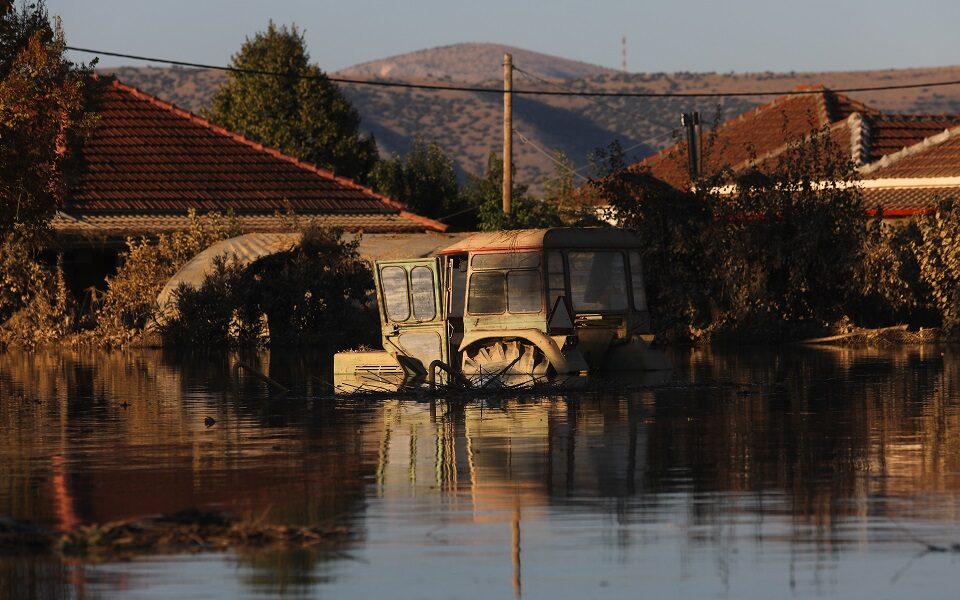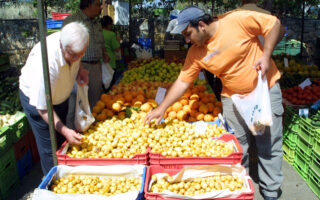Specter of shortages looms in wake of Thessaly floods

With the Thessaly Plain accounting for nearly 15% of the country’s agricultural land, covering more than 400,000 hectares, the specter of shortages and price hikes looms large in the wake of the massive floods that struck central Greece with the passage of storm Daniel last week.
Greece’s breadbasket, Thessaly is responsible for producing 70% of the country’s sugar beet, 50% of industrial tomatoes and major pulses like peas, 30% of cotton and barley, and 20% of hay used in livestock farming, not to mention much of its fruit – especially pears and apples – and vegetables.
It is also a major producer of lamb and pork (representing 36% and 16% of the country’s total, respectively), as well as supplying 20% of the milk used to make feta and other dairy products.
Even though authorities are as yet unable to assess the full extent of the damage from the persistent flooding, they consider this year’s cotton crop to be a washout as the storm hit just weeks before the harvest, while the damage to grapes, corn, clover and certain varieties of tomatoes used for canning is also expected to be very significant.
Another serious concern is the impact of the floods on soil quality in the area, with the CEO of the Dimitra Agricultural Organization (ELGO), Panagiotis Hatzinikolaou, saying that apart from erosion, sediment carried by the floodwater can render land barren. Speaking to Kathimerini, he added that ELGO teams will be dispatched to the area as soon as conditions allow soil samples to be taken from the flooded fields and analyzed.
Any shortages are not expected to start showing up on supermarket shelves and farmers’ market stalls for another few weeks, but when they do, this is expected to increase imports and drive up prices further.
“So far, the market is satisfactory,” the head of the Central Markets & Fishery Organization (OKAA), Apostolos Apostolakos, told Kathimerini.
The fact that is currently causing the biggest shortages, and especially delays in the supply of food stores, is that the Athens-Thessaloniki national road remains closed in some places. “The trucks, instead of five hours, take 12 hours,” Lambros Papakosmas, a Hellenic Hypermarkets Sklavenitis official, told Kathimerini.





